1. Don’t Run Your Generator All Night

Nothing kills campground peace faster than the steady hum of a generator at 2 a.m. Most campgrounds have “quiet hours,” typically between 10 p.m. and 6 a.m., and breaking those rules can get you stern warnings—or even booted out. Generators are essential for off-grid power, but not when your neighbors are trying to sleep. Invest in a solar setup or battery bank if you really need overnight electricity.
People complain about generator noise for a reason: it’s intrusive and travels surprisingly far in still air. Even if you think it’s quiet enough, your neighbor two spots down can probably hear it. Being respectful with power use shows you understand community living on the road. In short, silence at night is sacred RV etiquette.
2. Don’t Dump Your Tanks Wherever You Please
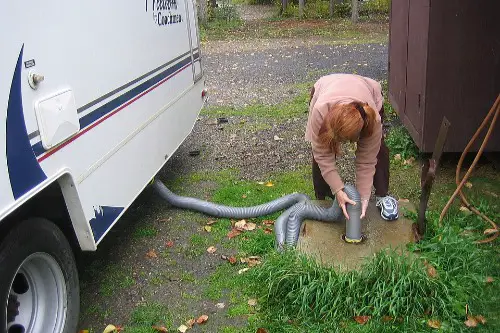
This one seems obvious, but it’s a surprisingly common mistake among newbies. Dumping gray or black water anywhere except a designated dump station is illegal in most places—and downright gross. Campgrounds and public lands take this seriously because improper dumping contaminates soil and water. You’ll get fined or banned if caught, and deservedly so.
Always use proper dump stations, and rinse the area after you’re done. Don’t leave toilet paper or waste behind—it’s not someone else’s job to clean it up. A portable tank or hose extension can make the process cleaner and easier. Treat the dump station like a shared kitchen: leave it better than you found it.
3. Don’t Block Other People’s Views
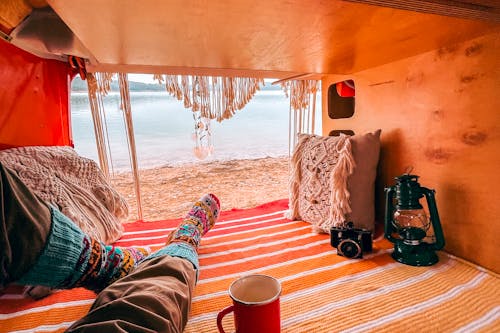
That gorgeous lakefront view isn’t yours alone, even if you got the best spot. Parking your RV or awning in a way that blocks others’ scenery or light is a fast way to make enemies. Good etiquette means keeping your setup compact and mindful of others’ space. Remember, people pay for views, not the side of your rig.
When setting up, look around and imagine what your neighbors see from their windows. If your awning shades their campfire spot, move it. It’s small adjustments like these that make the RV community so friendly. Respecting shared views keeps the peace and the sunsets beautiful for everyone.
4. Don’t Cut Through Other People’s Campsites
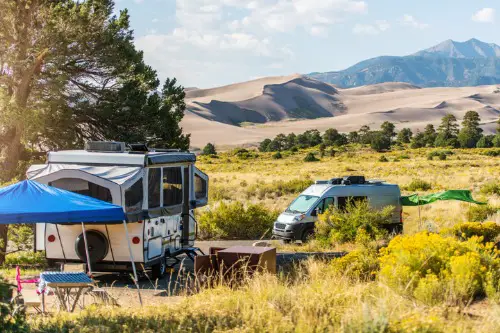
It might seem like a harmless shortcut, but walking through another camper’s site is a big no-no. RV spaces are like temporary yards—private, even if there’s no fence. People often leave valuables, pets, or even drying clothes outside. Stepping through feels intrusive and disrespectful.
If you need to get somewhere, walk on roads or designated paths. Even if it adds a few extra steps, it shows courtesy. Think of it as the RV equivalent of knocking before entering someone’s home. Respecting personal space goes a long way in building good campground karma.
5. Mind Your Lights at Night

Floodlights and LED strips might look cool, but they’re blinding in a dark campground. Many seasoned RVers prefer minimal lighting after sunset to preserve the night sky. Light pollution can ruin stargazing and disturb others trying to sleep. A few soft lanterns are all you need to move around safely.
Always turn off bright exterior lights after quiet hours begin. Some campgrounds even have “dark sky” rules to protect local wildlife and astronomy viewing. Motion-sensor lights are a smart compromise—they turn on only when needed. Be the kind of neighbor who glows softly, not one who lights up the entire park.
6. Keep Your Pets in Check

We all love our furry travel companions, but not everyone loves their barking or roaming. Most RV parks require pets to be leashed and under control at all times. Ignoring that can lead to noise complaints or safety issues with other animals. Even friendly dogs can cause problems when they wander into another campsite.
Always clean up after your pet—no one wants to step in a surprise. Bring waste bags, and dispose of them properly, not in fire pits or recycling bins. If your dog tends to bark when left alone, consider staying in pet-friendly boondocking areas instead of packed parks. Responsible pet owners make RV life better for everyone.
7. Don’t Hog Shared Amenities
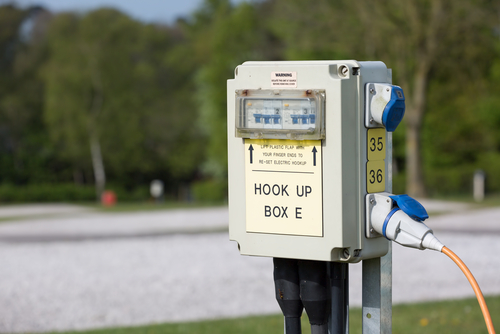
Whether it’s the laundry room, water spigot, or dump station, taking forever holds everyone up. Campground resources are limited, and long lines can turn tense fast. Be efficient—have everything ready before you pull up to use them. Nothing annoys seasoned travelers more than someone who treats shared spaces like private property.
If you need extra time, step aside and let others go ahead. It’s about keeping things moving smoothly for the whole community. Respecting time limits on showers or laundry isn’t just polite—it’s part of what keeps campgrounds running harmoniously. Think of it as RV courtesy meets time management.
8. Keep the Volume Reasonable

Loud music or TV can carry farther than you think in open spaces. Most campgrounds set clear noise limits for a reason. You don’t have to whisper, but you should keep it to conversational levels, especially outdoors. Not everyone shares your taste in classic rock or late-night movies.
Bring headphones for late-night entertainment or use indoor speakers with windows closed. If you’re hosting friends, move the party inside after quiet hours. Campgrounds are about enjoying nature, not turning them into tailgate parties. Peaceful sound levels make everyone’s stay more enjoyable.
9. Secure Your Trash—Wildlife Is Always Watching
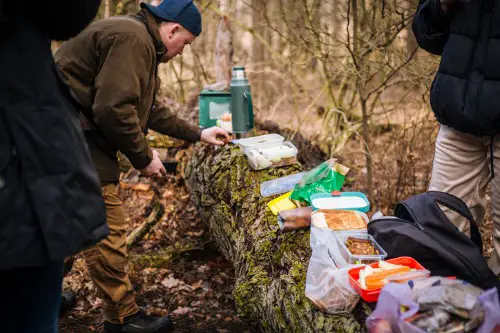
Leaving food or garbage outside is like sending an open invitation to raccoons, bears, or even stray dogs. Wildlife raids are a major issue in RV areas, especially in national parks. Once animals associate campsites with food, they become a danger to themselves and campers. That’s why many parks have strict food storage regulations.
Always use sealed bins and dispose of trash daily in designated containers. Avoid leaving coolers or pet food outside overnight. It’s not just about mess—it’s about protecting local ecosystems. Responsible waste management keeps everyone, including the animals, safe.
10. Don’t Overstay Your Welcome
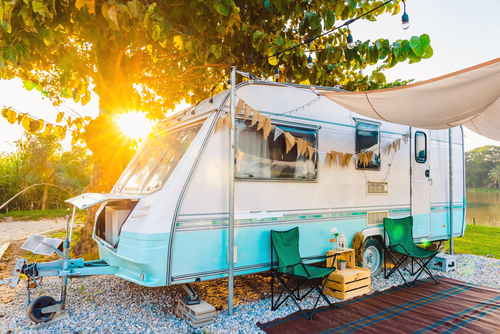
It’s tempting to stretch a stay, especially if the spot is perfect. But campgrounds often operate on tight reservation systems, and overstaying disrupts others’ plans. Management takes this seriously—it’s one of the fastest ways to get banned. Always respect check-out times, even if you’re only running a little late.
If you need more time, ask the office in advance; they’ll usually accommodate if space allows. But don’t assume—it creates scheduling headaches for others waiting to check in. Keeping to your reservation shows consideration for fellow travelers. In the RV world, punctuality equals politeness.
11. Don’t Wash Your RV or Dishes at the Spigot
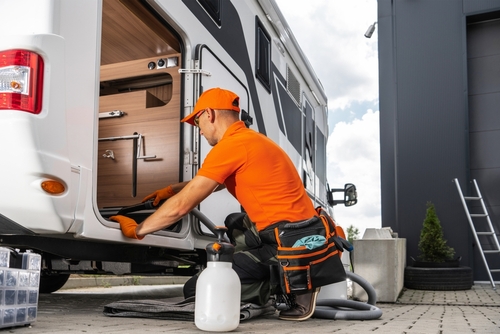
Water spigots are for filling tanks, not washing sudsy dishes or entire rigs. Most campgrounds restrict that kind of washing to prevent waste and contamination. Soap and grime can damage the local environment or clog drainage systems. Plus, it’s inconsiderate to tie up shared water sources.
If you need to clean, look for designated wash stations or use eco-friendly wipes and minimal water. Portable gray water containers can help manage cleanup responsibly. Always double-check campground rules before breaking out the soap. When in doubt—rinse privately, not publicly.
12. Respect the Check-In Process
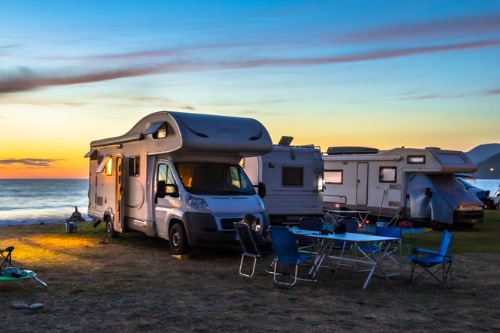
Skipping the office or pulling straight into a site might seem harmless, but it messes with campground logistics. Staff need to track who’s where for safety and maintenance reasons. If you bypass that system, you could end up in someone else’s reserved spot. That’s a headache for everyone involved.
Always check in and confirm your site before setting up. If you’re arriving late, call ahead—many parks have special instructions for after-hours arrivals. Following the process shows you respect the park’s operations and staff. The smoother you make their job, the smoother your stay will be.
This post 12 Common RV Etiquette Rules You Only Learn After Being Banned Once was first published on Greenhouse Black.
